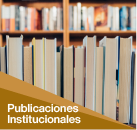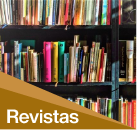Mostrar el registro sencillo del ítem
La Ronda de Época Vinculada al Calendario Agrofestivo en la Educación Inicial
| dc.contributor.advisor | Climent Pérez, Marta | |
| dc.contributor.author | Cordova Olivera, Angelaluiza | es_PE |
| dc.contributor.author | Nishiyama Saavedra, Ran Aydee | es_PE |
| dc.contributor.author | Velasquez Mamani, Mishelin Shaony | es_PE |
| dc.date.accessioned | 2025-06-02T08:20:02Z | |
| dc.date.available | 2025-06-02T08:20:02Z | |
| dc.date.issued | 2024-07-19 | |
| dc.identifier.uri | http://repositorio.pukllasunchis.org/xmlui/handle/PUK/162 | |
| dc.description.abstract | La ronda despierta en los niños la conciencia del trabajo en grupo a través de la imitación, permitiéndoles trabajar su imaginación y creatividad, es la base para establecer lazos de convivencia, socialización e integración de valores tomando en cuenta su contexto, su ritmo y la época en que se encuentran. Este proyecto de investigación, tiene como propósito investigar sobre las rondas de época de la pedagogía Waldorf y sobre el calendario agrofestivo. La pedagogía Waldorf nos presenta a las rondas de época, aquellas que contienen diferentes elementos y momentos de acuerdo a la estación y festividades de un determinado contexto. De la misma forma estudiamos el calendario agrofestivo un recurso que nos permite conocer las diferentes actividades que un lugar presenta, como las festividades agrícolas, tradicionales, religiosas, donde a la vez estas están acompañadas de diferentes señas y ritos. Al enlazar estos dos estudios, consideramos que tanto el calendario como las rondas de época generan momentos de encuentro donde se canta, se baila, se realizan movimientos, se trabaja la motricidad, el lenguaje, la memoria y el pensamiento. A través del movimiento, el canto, la música y la motricidad, se desarrolla a la par el lenguaje, la memoria, la atención y concentración, y, por tanto, el pensamiento. | es_PE |
| dc.description.abstract | Abstract The circle singing game awakens in children the awareness of group work through imitation, allowing them to work their imagination and creativity, it is the basis for establishing bonds of coexistence, socialization and integration of values taking into account their context, their rhythm and the time in which they are. The purpose of this research project is to investigate the Waldorf pedagogy's seasonal rounds and the agro-festive calendar. Waldorf pedagogy introduces us to the epochal rounds, those that contain different elements and moments according to the season and festivities of a given context. In the same way, we study the agro-festive calendar, a resource that allows us to know the different activities that a place presents, such as agricultural, traditional and religious festivities, where at the same time these are accompanied by different signs and rites. By linking these two studies, we consider that both the calendar and the rounds of the time generate moments of encounter where singing, dancing, movements, motor skills, language, memory and thought are worked on. Through movement, singing, music and motor skills, language, memory, attention and concentration, and therefore, thinking, are developed at the same time. Keywords: round, agricultural festival calendar, season. | es_PE |
| dc.description.abstract | Pisiy Rimayllapi Muyupi puqllaywanqa erqeqa yuyayninta riqch’arichin ruwaykunata qatipakuspa, mosqoynintawan kamaynintawan wiñachispa; chaywan kawsayninta, runa kayninta, allin runa kanapaq kamachiykunata hap’ispa, llaqtanpi kasqanku hina, pay atisqanman hina, ima mit’api kasqanku hinallapitaq. Kay k’uskina llank’ayqa maskan reqsiyta imaynan Waldorf yachachiy muyupi huñunakuspa puqllaykunawan chaqraq llapa wata raymikunawanpas. Waldorf yachachiyqa muyupi huñunakuspa puqllaykunatan mit’ata reqsichin, askha ruwaykunayoq, t’aqakunayoq llapa wata mit’akunaq raymikunan hina, aqllasqa llaqtapi. Hinallataq, chaqraq llapa wata raymikunatapas yachamuyku, chaywantaq maymantapas imaymana ruwaykunata reqsimuyku; chaqra raymikuna, ñawpa raymikuna, iñiy raymikuna, chaykunapitaq imaymana unanchasqakuna haywarikuykuna kan. Chay iskay k’uskikunata ruwaspa, niyku wata raymikunawan muyupi huñunakuspa mit’a puqllaykunawanpas kanmi huch’uy pachakuna takinapaq, tusunapaq, kuyunapaq; erqekunaq kurkunwan allinta ruwanankupaq, rimanankupaq, yuyarinankupaq, hamut’anankupaq. Kuyuykunawan, takiwan, yarawiwan, chaki maki ruwayninkuwanpas kuskan rimayta, yuyariyta, qhawariyta, ruwayta; hinallatataq, hamut’ayta. Chanin rimaykuna: muyupi puqllay, chaqra wata Raymi, mit’a. | es_PE |
| dc.format | application/pdf | es_PE |
| dc.language.iso | spa | es_PE |
| dc.publisher | Asociación Pukllasunchis | es_PE |
| dc.rights | info:eu-repo/semantics/openAccess | es_PE |
| dc.rights.uri | https://creativecommons.org/licenses/by-nc-sa/4.0/ | es_PE |
| dc.subject | Rondas infantiles | es_PE |
| dc.subject | Calendario Agrofestivo | es_PE |
| dc.subject | Época | es_PE |
| dc.title | La Ronda de Época Vinculada al Calendario Agrofestivo en la Educación Inicial | es_PE |
| dc.type | info:eu-repo/semantics/bachelorThesis | es_PE |
| dc.type.version | info:eu-repo/semantics/publishedVersion | es_PE |
| dc.publisher.country | PE | es_PE |
| dc.subject.ocde | https://purl.org/pe-repo/ocde/ford#5.03.01 | es_PE |
| renati.advisor.orcid | https://orcid.org/0000-0002-4642-850X | es_PE |
| renati.level | https://purl.org/pe-repo/renati/nivel#bachiller | es_PE |
| renati.discipline | 111016 | es_PE |
| renati.juror | Eguiluz Duffy, Cecilia María | es_PE |
| renati.juror | Villavicencio Callo Tanya | es_PE |
| renati.juror | Mar Salgado, Lourdes Cecilia | es_PE |
| thesis.degree.name | Bachiller en Educación Inicial | es_PE |
| thesis.degree.discipline | Educación Inicial | es_PE |
| thesis.degree.grantor | Escuela de Educación Superior Pedagógica Privada Pukllasunchis | es_PE |
| renati.author.dni | 71711248 | |
| renati.author.dni | 41771455 | |
| renati.author.dni | 70371240 | |
| renati.advisor.cext | 000955666 |
Ficheros en el ítem
Este ítem aparece en la(s) siguiente(s) colección(ones)
-
Educación Inicial [35]







